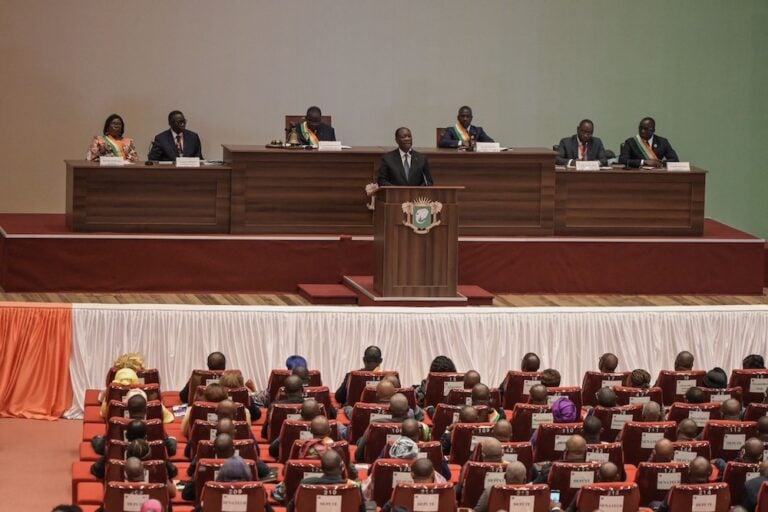(RSF/IFEX) – On 8 January 2003, RSF called on the Ivorian government to reprimand the state media after the government radio station described an arrested French journalist as “a spy in the pay of the country’s rebel forces.” Journalist Anne Boher, who works for the British news agency Reuters, was arrested on 6 January by […]
(RSF/IFEX) – On 8 January 2003, RSF called on the Ivorian government to reprimand the state media after the government radio station described an arrested French journalist as “a spy in the pay of the country’s rebel forces.”
Journalist Anne Boher, who works for the British news agency Reuters, was arrested on 6 January by government forces in San-Pédro, 450 kilometres west of Abidjan. The government radio station accused her of spying for the main rebel group, the Côte d’Ivoire Patriotic Movement (MPCI), which controls half the country, and said she was carrying “incriminating documents.” After being taken to Abidjan for questioning, she was released the next day.
“Being called a spy over the radio seriously endangers a journalist’s safety,” noted RSF Secretary-General Robert Ménard. “The state media’s role is to try and calm the situation, not make it worse,” he added. Ménard also requested a meeting with President Laurence Gbagbo to discuss the press freedom situation in Côte d’Ivoire.
The organisation called on the authorities, notably Communications Minister Séry Bailly, to make every effort to ensure that journalists can work freely and securely in areas of the country that are under government control.
Since the attempted coup on 19 September 2002, the press freedom situation in Côte d’Ivoire has sharply worsened, with many local and foreign journalists targeted by government forces. Several journalists have been arrested and a French radio producer was held for six days in October (see IFEX alerts of 29, 24 and 22 October 2002).


